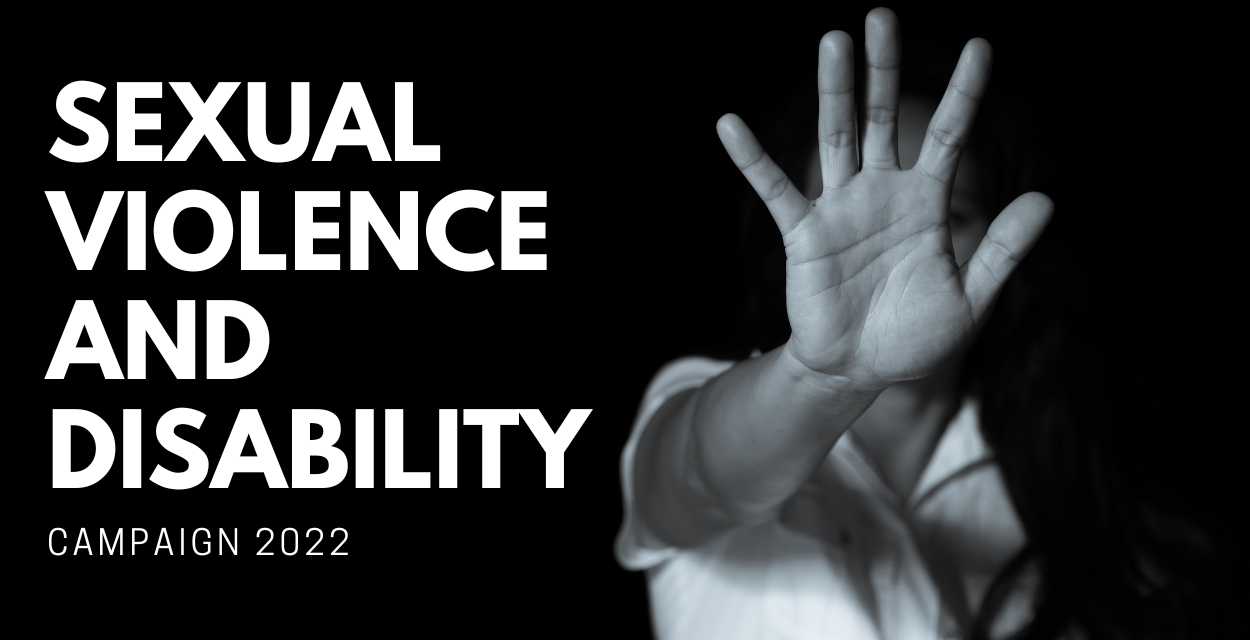
Sexual violence is a term that refers to any unwanted sexual act or sexually motivated behaviour that happens without consent, with forced consent or without seeking consent.
All forms of sexual abuse, sexual assault and sexual harassment are considered to be sexual violence.
What do sexual assault, sexual harassment and sexual abuse mean?
Sexual assault can refer to many different acts of sexual violence; it is defined by one person intentionally touching another in a sexual way without consent.
Sexual harassment is when someone carries out unwanted sexual behaviour towards another, causing that person to feel distress, fear, offence or humiliation.
Although sexual abuse itself is not a legal term, it is often used when discussing sexual violence to describe situations in which abusive behaviour was also present, such as domestic sexual abuse.
In the UK, not all forms of sexual harassment are illegal (such as catcalling or making sexually suggestive comments). However, that does not mean they are acceptable behaviour if they cause another person to feel uncomfortable or scared. Many organisations such as schools, workplaces, commercial and public spaces will have rules against sexual harassment.
Is sexual violence always physical?
No. Things such as discussing sex, staring, suggestive comments, flirting, exposing genitals, sending nude photos and cat calling can all be classed as sexual violence if they happen to someone who does not consent.
A threat of sexual assault is considered sexually violent, even if the threat is never carried out.
Why are flirting, cat calling, and sexual jokes considered sexual harassment?
In some situations, they won’t be. The key is consent.
If one person flirts with another, even if their intention is not to cause harm or upset, it may make the other person feel very uncomfortable, objectified, and unsafe – and thus be considered sexual harassment. This is why gaining consent is important not just for intimate sexual acts but for all sexual conduct, including flirting.
To gain consent in any situation, communication is key. It is important to gain consent for every different act with someone, for example: flirting, kissing and touching an intimate area of their body. Consent to one does not imply consent to the other, it is important not to assume consent.
Asking for consent to flirt may sound awkward, and flirting itself is hard to define. Asking someone if you can flirt with them is a very literal way of asking for consent to flirt and although some may feel it is awkward, it’s a far better alternative to making someone feel uncomfortable or unsafe. You may be able to be more subtle by asking in a way which relates to the context of the situation, such as asking if you could compliment someone. There are cultural ways to ask permission to flirt, such as asking someone if they would like a drink at a bar. However these are more open to misinterpretation.
Implied consent is hard to define. A happy couple in a long term relationship are unlikely to ask consent every time they kiss, because they have previously learned each other’s boundaries. They have established a shared intimacy in which they are both comfortable and to which they both consent. This is implied consent. However, it does not mean that they do not have the right to withdraw consent to being kissed or any other sexual activity, and it does not mean they must consent because they are in a relationship.
There is no such thing as “automatic” consent. Implied consent simply means something was communicated which expressed consent that was non-verbal or suggestive.
The only way to be absolutely sure you’ve gained consent is to ask for it verbally in a direct manner.
What is consent?
Giving consent means agreeing to an act or behaviour and must be given by all involved. The age of consent is 16 years old, anyone younger than this cannot consent to any form of sexual activity.
Consent must be actively sought for it to be given.
Consent cannot be gained using coercion or threats, this is sometimes referred to as forced consent, but it is not considered consent.
Consent must be given freely by someone who has the capacity to consent.
Reasons someone may not have capacity to consent include:
- Being asleep or unconscious
- Being under the age of consent
- Being drunk or having taken mind altering substances
- Having a mental health condition or illness that prevents them from being able to consent.
- Being put under pressure or force, be it physical, social, or otherwise
For someone to have capacity to consent to sexual behaviour they must be able to understand as a minimum:
- That they have a choice whether to accept/engage in any sexual behaviours
- That they can change their mind at any time
- The potential consequences of the behaviour
- The mechanics of any sexual act they want to take part in
- Contraception
- Associated health risks, especially sexually transmitted diseases
- That sex between a man and a woman may result in the woman becoming pregnant
If someone has a mental health condition or a learning impairment and is unable to understand the above, it’s unlikely that they have capacity to consent. In England and Wales, the Mental Capacity Act (2005) sets out the legal position relating to determination of capacity. In Scotland, The Adults with Incapacity Act (2000) sets out the legal frameworks.
Not being asked for consent, not saying no, being in a relationship or giving consent to other sexual activity does not equal automatic consent, consent must always be granted.
Any non-consensual sexual activity is sexual violence.
Who can sexual violence happen to?
Anyone can be a victim of sexual violence.
Someone does not have to be considered vulnerable to experience sexual violence. However, some demographics are more likely to experience sexual violence than others.
A recent Office for National Statistics report has shown that women with disabilities are twice as likely to experience sexual violence than non-disabled women, and are five times more likely to experience it than men with disabilities.
Can anyone commit sexual violence?
Yes! Just as anyone can be a victim, anyone can also be an aggressor, be them a stranger or someone known to the victim.
Having a sexual or intimate relationship with someone does not grant automatic consent to sexual behaviours, and therefore sexual violence can happen within relationships which also contain other consensual sexual activity.
Where can it happen?
Sexual violence can happen anywhere. It can take place in public places or in private. Sexual violence can happen in person, but it can also take place remotely over the phone, online or even via letter.
There is no setting or situation in which sexual violence is acceptable.
Some examples of sexual violence online include the following if conducted without consent:
- Commenting on someone’s body or appearance.
- Sending nude photos.
- Asking questions about a person’s sex life or discussing your own sex life.
- Sexual jokes or suggestive comments.
- Unwanted sexual advances or flirtation.
It is also sexual violence if someone shares intimate images or videos of someone else without their consent to share the media. This is the case even if the pictures or videos were given with consent, this is not the same as giving consent for the image to be shared.
Even if the person in the photos is unaware of this happening, it is still sexual violence.
Sexual violence is never acceptable behaviour, and no one deserves to experience it.
Something does not have to be physical or intended to cause harm to be considered sexual violence.
Any sexual act or behaviour conducted without consent, or with someone who does not have the capacity to consent, is classed as sexual violence. It is important that consent is actively sought and gained for every sexual act or behaviour.
If you have been impacted by any of the topics discussed above and would like to seek help or advice, please take a look at the organisations listed below.
Rape Crisis
Anyone over the age of 16 who has experienced sexual violence can contact rape crisis for advice and support by calling 0808 802 9999 or going online.
National Male Survivor Helpline and Online Support Service
A dedicated service for anyone who identifies as male affected by sexual violence, and those who support them. You can contact them via:
- Phone: 0808 800 5005
- Email: support@safeline.org.uk
The Survivors Trust
This is a free helpline open 7 days a week for people over the age of 16 who have experienced sexual violence or support someone who has. To contact them call: 0808 801 0818
Refuge
For women who have experienced domestic violence. Refuge operate a freephone, 24-hour National Domestic Abuse Helpline. To use this service please call: 0808 2000 247
Sources:

